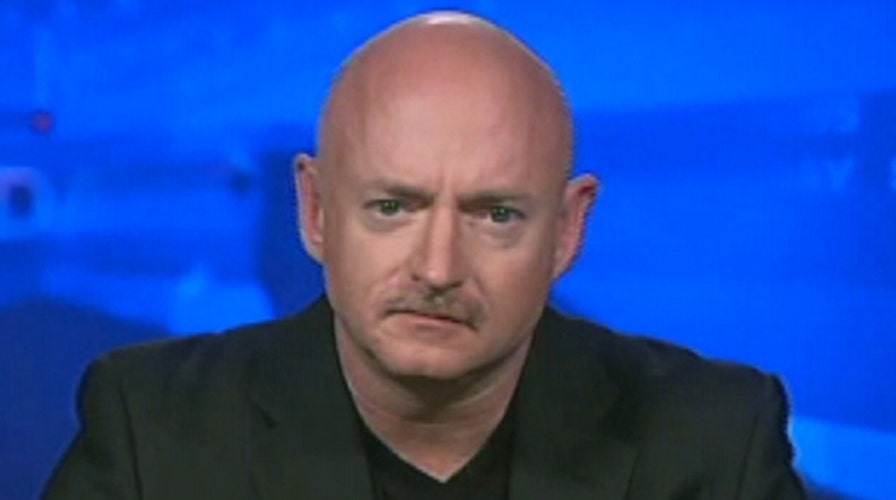Capt. Mark Kelly: 'This isn't about the Second Amendment'
Gun control advocate on 'Fox News Sunday'
Two of the country’s most influential voices in the gun control debate weighed in Sunday on the issue, but appeared no closer in reaching a compromise -- even on the issue of universal background checks.
Wayne LaPierre, the National Rifle Association’s chief executive, told “Fox News Sunday” his group has tried unsuccessfully for such a check for two decades.
“I’ve been in this fight for 20 years. We proposed it. I don’t think it’s going to happen,” said LaPierre, who argued the mental health lobby and federal laws have prevented the names of people with potentially dangerous mental health problems from being put into a federal database.
He also said that "criminals won't comply."
LaPierre was skeptical about whether the Obama administration would take the gun-control legislation, if passed, a step farther.
"I think what they'll do is they'll turn this universal (background) check on the law-abiding into a universal registry on law-abiding people," he said. "ObamaCare wasn't a tax until they needed it to be a tax. I don't think you can trust these people."
Retired Navy Capt. Mark Kelly, whose wife former Arizona Rep. Gabrielle Giffords was shot in the head by an emotionally disturbed gunman, argued for the background check. He told Fox that Giffords, a Democrat, and others might have been spared in the 2011 mass shooting in Tucson had the state entered the shooter’s name into a database.
The argument came nearly seven weeks after a gunman killed 20 children and six adults inside a Connecticut elementary school and five days after the first Senate hearing on the issue, following the Dec. 14 mass shooting.
Kelly also said he supports tightened background checks at gun shows and proposals by President Obama and fellow Democrats in the Senate to ban high-capacity magazines.
However, he would not fully commit to backing an automatic-weapons ban, which at this point does not appear to have enough widespread support to become law.
Kelly said semi-automatic weapons are “just too dangerous to be on the streets” for criminals, terrorists and the mentally ill.
“Gabby and I know this is going to be a hard problem to solve,” said Kelly, who also pointed out he served in the Middle East with such weapons.
"I don't think you'll find a stronger supporter of the Second Amendment than me," he said. "I fought for it."





